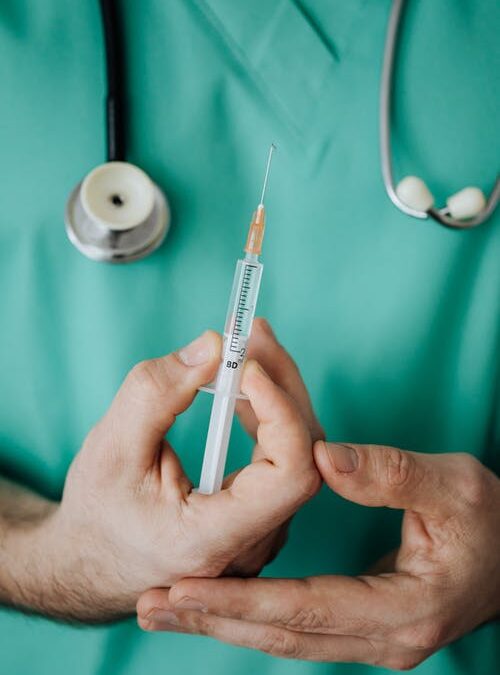
Mar 16, 2021
I’ve had my vaccine shots, and my life is slowly starting to change. On the plus side, I went shopping a few times last week, and we had someone from our building over to share a pizza. But we’re still living with restrictions. We wear masks, don’t eat at indoor restaurants, and aren’t traveling anywhere.
It still feels like the end of Covid is coming. I don’t know when and how my life will be different from what it is now. I made my adjustments a year ago, and now it’s time to make some more.
Change and uncertainty are always there. I’m a planner, and I refuse to be immobilized. Right now, I’m in the early stages of formulating a plan. I’ll use three steps in my planning process:
- Figuring out what I want to accomplish. I find it easy to generate ideas. Right now, I’m in my brainstorming mode – the more ideas the better. Soon I’ll start to winnow them down. For my filter I’ll use my core values. My values include helping others, thinking things through, improving continuously, and exploring. When I’m done with this phase, I’ll have developed my objectives and goals.
- Considering several alternative approaches. Next, I have to figure out how I’m going to accomplish these goals. An important part of this step is to identify partners to help me with tasks that will be difficult for me on my own.
- Getting started. I’ll set some specific goals and map out some of the first steps. Then I’ll take some very small actions to get started.
I find that planning my next steps helps me in two significant ways:
- Most important, it gives me a sense of control over my life. That permits me to have a more intentional and fulfilling retirement life.
- The planning helps me to focus on what’s really important for me and then make some progress towards the fulfilling life that I’m looking for.
I realize that I can do my planning at any time. The end of Covid is a particularly good time to do more planning, because there will be many changes happening, and I want to adapt.
In fact, planning can smooth any transition that you’re expecting to make.
What are your post-Covid plans?
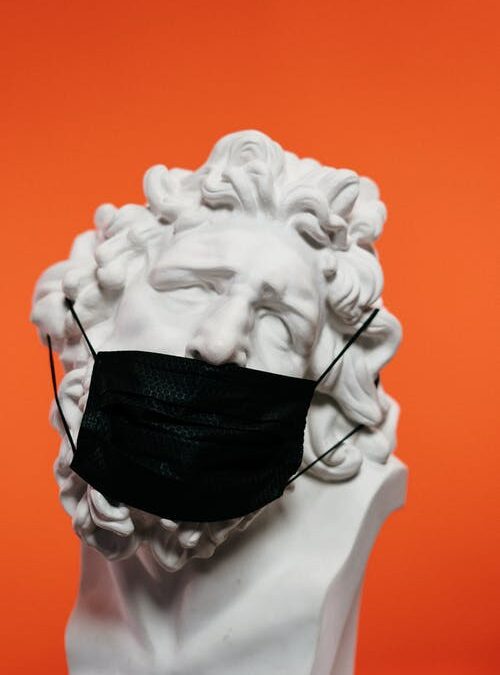
Jan 5, 2021
I continue to be surprised after my quarantine for Covid ended last week. My biggest surprise was that I am the same person that I was before my quarantine ended. After my quarantine I still could not leap over buildings in a single bound. All of my health conditions and limitations were still there. Relationships, work/volunteer situations – all unchanged. These will all be true when Covid “ends.”
I certainly don’t feel like my own Covid has ended. Because I tested positive but had no symptoms, I don’t know if I had a “false positive” result or if my Covid was even strong enough to produce antibodies to it. Until I receive my vaccinations, I will continue my mask-wearing and physical distancing.
My transition may be a harbinger for what life will be like after we get the vaccine and return to “normal.” Will Covid really be over for us? If the vaccine is 95% effective, what about the other 5%? How long will the immunity last? Will the vaccine work against new mutated strains of the disease? Will more than 25% of people reject taking the vaccine, thereby preventing herd-immunity?
We cannot entirely control whether we get Covid or not. We do not know how severe it will be if or when we get it. What we can control are our actions and to some extent our moods and thoughts.
There are huge implications if Covid is here to stay. Many people are looking back at 2020 as a wasted year. If this is true, will they also have a wasted 2021, 2022, etc.? A life is a terrible thing to waste!
I feel like I have used my time wisely during Covid, before and after testing positive. For me, it has been a time particularly for learning new skills. 2020 was not a waste for me.
What can you do so that 2021 is not a waste for you, Covid or not? What will your attitude be? Whether you are working or not, what actions will you take? What activities will you include in your life so that 2021 is your best year yet?

Dec 29, 2020
On December 14 I tested positive for Covid 19. I’ve had absolutely no symptoms whatsoever over the past two weeks of my quarantine. I learned a lot.
Lesson 1: When the diagnosis was unexpected, it was shocking. I was barely out of my apartment for many months. I had done nothing “wrong” but still got it. I have no idea how that happened.
Lesson 2. The virus didn’t care what I believed. I believed that I had taken enough precautions not to be infected. I still tested positive.
Lesson 3: Just because someone looks healthy, it doesn’t mean that you’re safe if you mingle with them, unless they’ve very recently tested negative. A substantial number of people who get Covid 19 have no symptoms, but they can still infect others. You could have Covid and not know it if you’ve not been tested.
Lesson 4: The strict quarantining is even less fun than the normal safety precautions. My wife tested negative, so we had to work hard (masks, distancing, shifting household tasks) to prevent her from getting it. I can’t wait to get back to “normal – even pre-quarantine “normal.”
Lesson 5: The initial lack of symptoms didn’t remove the uncertainty. Would the Covid 19 flare up in a day or two? Also, some people report new symptoms months after contracting the disease. I think that I’m okay, but I don’t know for sure.
Lesson 6: Attitude mattered. As my shock diminished, my general feeling of optimism reappeared. My positive attitude helped me deal with the situation. I don’t know if my precautions had delayed the onset or diminished the severity of my Covid. I am extremely grateful that my situation wasn’t much worse.
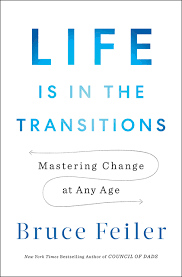
Dec 21, 2020
Covid 19 has been an enormous disruptor for most people in the entire world – a change from what we’ve been doing and perhaps expecting to do. The normal expectation is that we’ll have a linear life – that we’ll keep going in the same direction as in the past and hopefully live happily ever after. Not so now.
We’ve all experienced disruptions in the past. What are they? The most well-known list of disruptions is the Holmes-Rahe life stress inventory. It includes changes in health, relationships, beliefs, work, and identity. The list is long. Any of these can disrupt your life.
In his book “Life Is in the Transitions” Bruce Feiler describes the results of his in-depth interviews of 225 people. He found that on average people experience a disruption every 12 – 18 months.
Feiler uses the term “lifequake” to describe a serious life-changing disruption. On average people experience 3 – 5 of these in their lifetimes. The Covid 19 virus can disrupt multiple areas of our lives all at once. For many of us, it is a lifequake.
How did we handle previous disruptions and lifequakes in ourlives? We generally found a way to adapt, although in some cases it could have taken years. Here are some of the strategies that Feiler describes that people have used as they have transitioned from the “before” to the “after”:
- Moving from resistance to acceptance of the new situation (think of the 12-step program)
- Dealing with emotions – fears of different kinds
- Giving up old mind-sets, being creative, and trying new things (including writing/journaling)
- Ritualizing change – marking an end and beginning
- Launching / Unveiling your new self and composing a new story for your new life
Many of these transitions, especially if they result from lifequakes, can take considerable time to accomplish. They are facilitated by help and support from others.
Are you in a lifequake now? What do you plan to do about it?
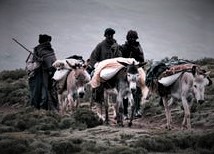
Dec 8, 2020
The pandemic is an excellent time to build your tribe. It is easy to feel isolated now when we are physically separate from friends and relatives. The isolation may motivate us to take action.
Historically, a tribe was a community related by geography, genetics, or history. In this internet age a tribe has come to mean people with common interests and values who use a shared vocabulary to communicate.
I take the notion of a tribe personally. I like to think of a tribe as people I know on a common journey, a network of like-minded people.
My tribe is comprised of people who accept and respect me for who I am. They care. They listen to what I have to say, yet challenge me when that is appropriate. They have similar morals and values or a similar history or interests to mine. Our conversations are easy and meaningful.
I have the same responsibility for them, including listening, accepting, and supporting them.
Building my tribe has not been easy, but it is worth it. My antennae are always out looking for candidates whom I can recruit. I will use Zoom to meet and greet them and invite them to be part of it.
Once they are members, I dedicate my time to building the relationship through periodic meetings. Or else we drift apart. Connecting doesn’t happen by itself. It requires time energy, and commitment. But the benefits are terrific – acceptance of who we are and companions in our journeys through life. My tribe can always use some more members.
What can you do to make more connections and build your own tribe?
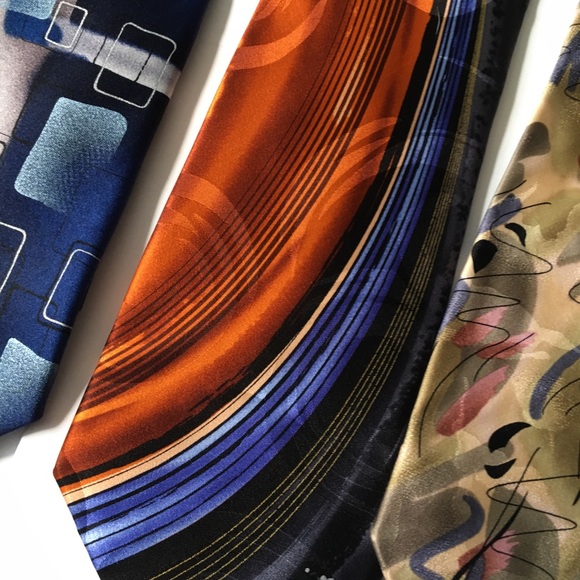
Nov 24, 2020
My relationship with my clothes has been evolving during the pandemic.
I have my own style. For a long time, I have chosen to wear light-colored dress shirts, rather than white shirts, for business and other formal occasions. Through the years, before the pandemic, I accumulated a collection of sport jackets, dress slacks, shirts, and Jerry Garcia ties. I wore them when I met with clients, attended dressier cultural events, or went to religious services.
During the pandemic, I have continued to do all three of these activities, although through Zoom and in a more limited way. But the clothes I wear has changed dramatically, even for those activities. Now I dress much more casually.
Lately, I’ve been experimenting not just with the clothes I wear but even how I wear them. For example, in the past, I may have worn a colored t-shirt underneath a nice casual long-sleeved shirt. Now, I may wear the same colored t-shirt on top of the long-sleeved shirt. Because I can and want to.
A friend of mine, age 83, just bought a pair of blue jeans and is wearing jeans for the first time in his life. This was a big deal for him. For him it was taking on a new identity.
I have been suspecting for some time that our behaviors would evolve as the pandemic progressed. Are these clothes-wearing changes related to the pandemic? If so, will we revert to our old style when the pandemic ends? Do these changes result from boredom or a sense of adventure?
We define ourselves by what we say and do. The clothes we wear are an announcement that we send to ourselves and to others about who we are. Any modifications we make to what we wear are a message to the world that we ourselves have changed, that we have different identities in this time of the pandemic.
Are you wearing different clothes recently? What message do you want to send out to others?






